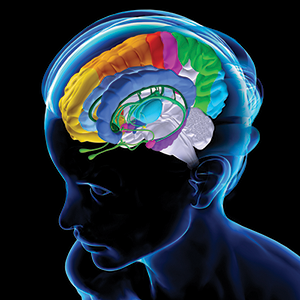Science sometimes makes the most unlikely connections. So it goes that a hormone most associated with pregnancy just might revolutionize treatment of traumatic brain injuries (TBIs).

A woman’s body naturally expresses progesterone, a hormone that helps set the stage for conception and pregnancy. Although it is widely considered just a “sex steroid,” scientists believe it also might be a potent neurosteroid — a compound that affects neuron activity in the brain. In 1987, Donald Stein, Ph.D., a researcher at Emory University, discovered that female rats recovered more quickly from brain injury than male rats. Ultimately, Stein determined that progesterone was the difference-maker. Subsequent animal studies indicated that early administration of progesterone after TBI reduced cerebral edema, neuronal loss, and behavioral deficits in lab animals.
Now, those discoveries are being translated to human health care in the form of a nationwide clinical trial — ProTECT III: Progesterone for Traumatic Brain Injury: Experimental Clinical Treatment, Phase III — funded through a $28 million National Institutes of Health grant.
Babak Sarani, M.D. ’97, RESD ’04, associate professor of surgery at GW’s School of Medicine and Health Sciences (SMHS) and the director of Trauma & Acute Care Surgery at the George Washington University Hospital, serves as the Washington, D.C., area’s principal site investigator for the study. Physicians such as Sarani hope to enroll 1,140 patients across 15 states to explore the effectiveness of the treatment.
The urgency for a new course of action, he says, is obvious. According to the Centers for Disease Control and Prevention, every 15 seconds someone in the United States sustains a significant brain injury, every five minutes one of those patients is permanently disabled, and more than 50,000 people die each year as a consequence of TBI.
“No one really knows how progesterone heals the brain, assuming it does,” says Sarani. “We think it reduces inflammation in the brain, enhances blood vessel regeneration, and scavenges free radicals that oxidize the brain.” If successful, Sarani says the impact of the study on emergency medicine “will be gigantic, one of the few landmark articles that people should read and memorize.”
Related Content:
- Click for link to ClinicalTrials.gov
- Click to go to Faculty Profile of Babak Sarani, M.D.



